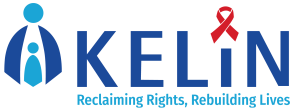
STRENGTHENING ACCESS TO JUSTICE: THE ROLE OF ALTERNATIVE JUSTICE SYSTEMS IN KENYA
In Kenya, as in many parts of the world, accessing justice through formal legal channels can be cumbersome, expensive, and time-consuming. As evidenced by a Justice Needs and Satisfaction Survey conducted by the Judiciary in 2017, only a mere 10% of those with justice needs opt for formal justice institutions to address their legal problems. This stark reality underscores the importance of alternative justice systems (AJS) in bridging the gap between the law and the people it serves.
One of the fundamental principles enshrined in the Constitution of Kenya 2010 is the embrace of alternative dispute resolution mechanisms, including traditional justice systems. This principle acknowledges the importance of incorporating indigenous methods of conflict resolution into the legal framework, recognizing their significance within Kenyan society.
Informal justice systems, including customary and traditional dispute resolution mechanisms, offer a more accessible and affordable avenue for resolving disputes within communities. However, these systems are not without their challenges. Issues such as fairness, accountability, and alignment with human rights standards often arise, highlighting the need for their strengthening and regulation.
Recognizing the significance of AJS and in compliance with the constitutional directive outlined in Article 159(2)(c), the Judiciary has taken significant steps to enhance these systems. Central to these efforts is the development and implementation of the Alternative Justice Systems Policy (AJS Policy). Crafted in consultation with various stakeholders, this policy aims to formalize, regulate, and elevate the status of AJS in Kenya.
What is the AJS?
Alternative Justice Systems are the comprehensive organic, non-state mechanisms of laws, norms, customs, social and legal systems which govern and regulate the entire spectrum of activities and lives of individuals from birth to death.
AJS encompass a diverse array of informal mechanisms for conflict resolution deeply rooted in the cultural fabric of Kenyan society. These systems, including customary and traditional dispute resolution mechanisms, offer accessible, community-driven avenues for resolving disputes outside the formal legal framework.
What are the principles of the AJS?
Crucially, the AJS Policy emphasizes the importance of aligning informal justice mechanisms with the principles and values enshrined in the Constitution of Kenya, 2010, as well as international human rights standards. It acknowledges the need for a pluralistic approach to justice that respects the cultural, socio-economic, and geographic diversity of the population.[1]
Central to the Alternative Justice System are principles that prioritize restorative justice, reconciliation, and consensus-building. Unlike the adversarial nature of formal courts, AJS focuses on repairing harm, restoring relationships, and fostering community cohesion. Moreover, these systems often emphasize mediation, dialogue, and the active participation of all parties involved.
What is the impact of AJS so far?
The impact of the AJS Policy on access to justice in Kenya has been tangible. By facilitating the resolution of a significant number of disputes outside the formal court system, it has alleviated the burden on overloaded courts and reduced case backlogs. To further enhance accessibility, the Judiciary has established AJS Suites referred to as “Ukumbi” in various counties, including Isiolo, Kajiado, Nakuru, and Lamu. Additionally, county-specific action plans have been launched in places like Kajiado and Nakuru as part of a nationwide rollout of AJS initiatives.
In conjunction with the National Steering Committee on the Implementation of AJS (NaSci-AJS), the Judiciary organizes an annual AJS Conference aimed at educating Kenyans and stakeholders on the role of informal and traditional justice systems in enhancing access to justice. These initiatives serve to foster greater understanding and collaboration between formal and informal justice sectors, ultimately working towards a more equitable and inclusive legal landscape. KELIN has proudly partnered in these initiatives and been ably represented by the AJS practitioners we collaborate with in the community. Additionally, KELIN has partnered with NaSCI-AJS and Court Users Committees in Kisumu and Siaya to develop specific county action plans, the Kisumu model now awaiting launch.
Indeed, the development and implementation of the Alternative Justice Systems Policy represent a significant stride towards strengthening access to justice in Kenya.[2] By formalizing and regulating informal justice mechanisms, the Judiciary is not only expanding avenues for dispute resolution but also promoting fairness, accountability, and respect for human rights within communities.
What are some of the challenges and opportunities presented by the AJS?
Despite its advantages, the Alternative Justice System in Kenya encounters several challenges. These include gender bias, stemming from the patriarchal nature of land and property rights, as well as the lack of uniformity in decision-making processes, which heavily rely on consensus. Additionally, there is a notable gap in awareness among community members, particularly women, who continue to experience distress despite the potential solutions available to them. Addressing these challenges necessitates ongoing capacity-building efforts, not only for trained practitioners but also for paralegals serving in remote communities. Such initiatives are crucial in enhancing access to justice and bridging the existing gaps in legal awareness and empowerment.
However, these challenges also present opportunities for collaboration among like-minded stakeholders, innovation on how to conduct regular capacity building sessions, and the integration of best practices to enhance the effectiveness and inclusivity of AJS.
Overall, as these efforts continue to evolve, they hold the potential to transform the legal landscape, making justice more accessible, responsive, and inclusive for all Kenyans, and more especially women who continue to face discrimination based on social norms around land and property rights.
[1] https://ajskenya.or.ke/2022/04/08/justiceineverydaylife/
[2] https://www.unodc.org/easternafrica/en/Stories/alternative-justice-system-as-a-catalyst-for-advancing-access-to-justice-in-kenya.html#:~:text=Alternative%20justice%20processes%20reduce%20the,than%20replacing%20reliance%20on%20courts.

